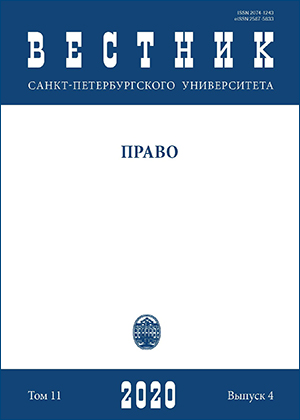Legal nature of online courses and issues of their use in educational activities of universities
DOI:
https://doi.org/10.21638/spbu14.2020.405Abstract
The article examines the legal issues of using online courses by educational institutions of higher education in the implementation of their educational activities. Currently, the application of online courses in the educational process of higher education organizations is connected with a number of legal issues related to the uncertainty in understanding the legal nature of online courses and the nature of the services that students receive when mastering online courses. Further difficulties are related to the practical difficulties in the design, production, support of online courses, as well as accounting for the results of mastering online courses in the framework of students’ training in the main educational program. The resolution of these legal problems requires a comparison of the concepts of “distance learning technologies”, “e-learning” and “online course”. Also, an analysis of other important issues is necessary, such as a procedure for crediting students’ successful completion of the online course; the possibility of using the results in the framework of education; determining the nature the type of services received by the student as educational or informational; approaches to conducting certification which includes issues of confirming student identity. In addition, the problem of introducing online courses affects the analysis of activities of educational institutions of higher education on the use of online courses of other educational organizations in their educational process. Introducing online courses also affects the study of the characteristics of the relationship between educational organizations and their specific scientific and pedagogical employees who were involved in the development, production, and support of online courses in relation to determining the volume of their workload during an online course, and the use of an image of a scientific and pedagogical employee who took part in the production of an online course as the implementor of one’s own product or that of another person.
Keywords:
distance learning technologies, e-learning, online course, educational services, information services, certification, accounting of the learning results, scientific and pedagogical employees
Downloads
References
Downloads
Published
How to Cite
Issue
Section
License
Articles of "Vestnik of Saint Petersburg University. Law" are open access distributed under the terms of the License Agreement with Saint Petersburg State University, which permits to the authors unrestricted distribution and self-archiving free of charge.






